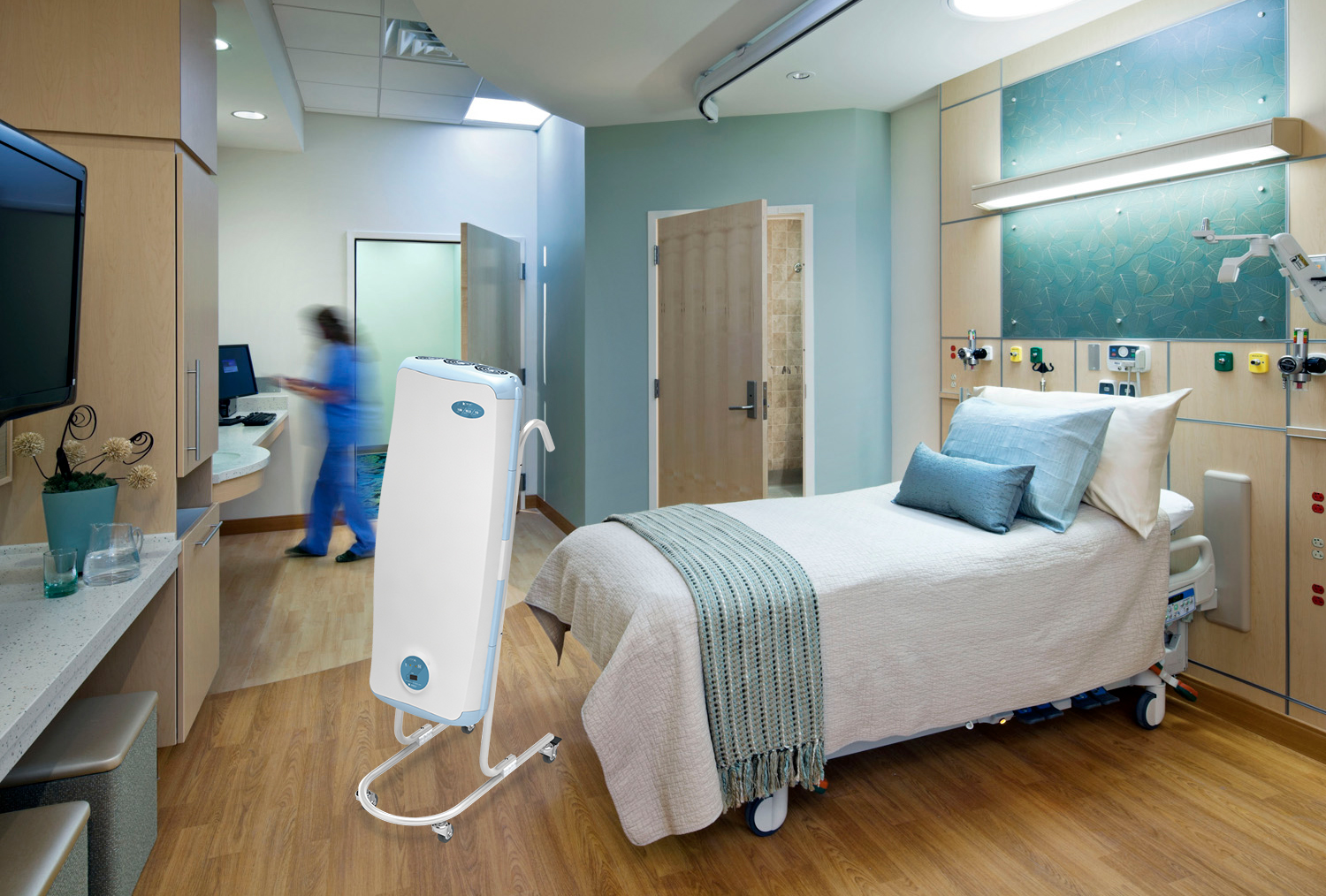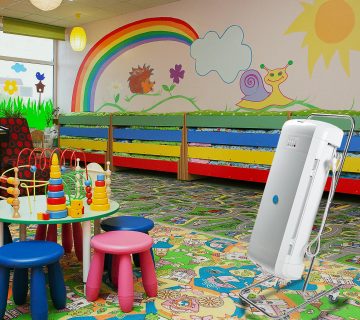Illness increases during the cold season
In autumn, winter and even spring it is cold and humid outside, thus rich in virus-related and cold diseases. It is easy to catch a cold or get sick during this time. This is affected not only by our weakened immunity, but also by the risk of becoming infected with the oppressive and coughing people we have to interact with. A commonly ill person can very often infect coworkers or family members.
Reducing the sources of infection can be difficult for us. After all, in the public space we can meet people of various health conditions. Vitamins and good nutrition alone do not always help to prevent diseases, we often have to deal with stress and chronic fatigue. What can we do when the indoor air we work in or just live in is filled with air or droplet-spreading bacteria and viruses? We can just clean it up.
Indoor air is a great medium for viruses
Humid air is a great medium for viruses and bacteria to live and reproduce. Various upper respiratory viruses or influenza, tuberculosis bacteria and other microbes spreading by air droplets can reach each of us in public spaces: hospitals, clinics or hospices, dentists or massage parlors, schools and kindergartens, hairdressers, shops, nursing homes, gyms, gyms changing rooms, etc. Billions of different pathogens are found in these facilities, which are visited by many ill people. Each new visitor “brings” new potential disease. Airborne infectious diseases mainly affect people working in rooms that are visited by a large number of people. Doctors, nurses, dentists, bankers, salespeople, IT professionals, masseurs, school staff can become infected in their work environment, and the most painful result is lost health and time trying to restore it.
How to reduce indoor air pollution?
The oldest known method of air purification is indoor ventilation, but let’s try to imagine winter and a thermometer column showing a minus temperature. You are unlikely to want to open the windows wide in the patient’s ward, office space or kindergarten. This method of cleaning the indoor air is short-lived and it is again contaminated with bacteria or viruses due to the people or visitors in it.
One way to disinfect indoor air is to irradiate it with open-type ultraviolet lamps. This method has two major drawbacks: the room cannot be occupied while the room is being disinfected, and the air in the room is re-polluted within a short time after the procedure when returning to the room.
Modern technology goes hand in hand with our needs. Currently, it is possible to offer a modern alternative – a closed type bactericidal recirculator DEZAR. It will help to foil and clean the indoor air from viruses and various bacteria that cause various diseases when there are people in the room all the time and there is no possibility to separate them for a while to prevent the air from being disinfected.
Bactericidal recirculators DEZAR for sites disinfection
Closed type bactericidal recirculators are designed for indoor disinfection and air purification from bacteria in closed spaces. They are designed to operate continuously at all times when there are people in the room. Thanks to their continuous process, bactericidal recirculators reliably protect the air in the room, even when many people visit the room, who can “bring” potential pathogens. Also, the risk of infecting sick people in the room to healthy people is reduced to a minimum.
The principle of operation of bactericidal recirculators is as follows: with the help of silent fans the air is drawn into the recirculator frame, cleaned of dust and pollen and disinfected with solid ultraviolet spectrum UV – C, which destroys viruses and bacteria, and cleans the air. A carbon filter can also be used, which additionally absorbs organic matter of natural and acidic origin from the air and thus ensures the effect of air disinfection.
Depending on the model and its capacity, the bactericidal recirculator cleans an area of 70 to 100 m3 of air or an area of approximately 25 to 40 m2 per hour. The quality of disinfection can range from 98 to 99.9%, depending on the number of antibacterial lamps used inside the recirculator.
Modern and safe antibacterial lamps emit UV – C rays of the solid ultraviolet spectrum with a wavelength of 280 nm to 100 nm, but they do not generate ozone. This is very important for the recirculator to operate continuously. Microorganisms absorb ultraviolet rays, which promote chemical reactions in the cell nuclei and thus destroy the microorganisms. According to a study by Boston University, UV – C rays can help destroy even parts of drug – resistant microorganisms.
Bactericidal recirculators can be wall-mounted, but the most popular are mobile models with a stand with wheels, as they can be conveniently transported to another room.
The recirculator frame is made of unbreakable, chemically resistant plastic. The outer surfaces of the recirculator are resistant to all permitted disinfectants, making them particularly suitable for use in operating rooms.
Bactericidal recirculators DEZAR are intended for continuous disinfection of indoor air when there are people in the room: offices, administrative and public premises, wards, waiting rooms, reception areas, operating rooms, dental offices, laboratories, preschools and schools, hospices and spas, children’s play and entertainment rooms, massage parlors, food establishments, changing rooms, gyms, cafes and bars, libraries and homes.
If you care about the health of employees, patients, customers, children, family members and those around you, we recommend purchasing the bactericidal recycler DEZAR.
See the website for more information test.rupinkissavimi.lt or call +370 (602) 63093.
We will give you a detailed consultation and recommend which models of bactericidal recyclers DEZAR will meet the needs of you and the people around you. Let’s take care of our own health and the health of those around us!
https://rupinkissavimi.lt/







